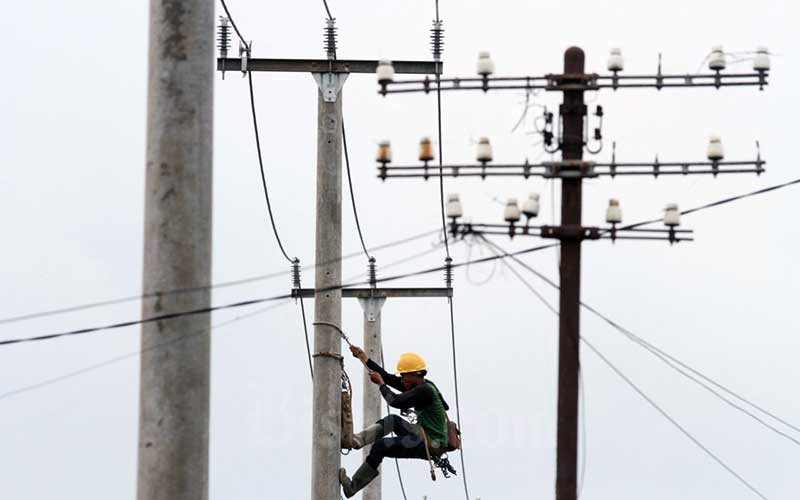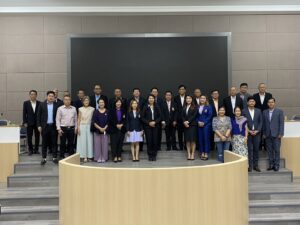[ad_1]
Researchers recommend enhanced resilience to droughts that may occur twice as frequently in El Nino years
Photo for representation: iStock
February was the driest month since 1981 for most of Zimbabwe, Zambia and parts of Botswana and Angola, according to official reports. It was among the top three driest months for most of Malawi and Mozambique.
Three southern African nations — Zambia, Malawi and Zimbabwe — declared drought as a national disaster between February and April, 2024.
El Nino has emerged as the primary catalyst for this drought event, a new study has established.
These types of droughts are projected to happen about once every 10 years in the current climate. But, when El Nino is taken into account, the likelihood of severe droughts occurring during El Nino years doubles, according to the report by scientists from Zambia, Botswana, Kenya, Mozambique, South Africa, the Netherlands, Sweden and the United Kingdom.
They had collaborated to determine how much the 2024 El Nino-Southern Oscillation condition and human-caused climate change affected the probability and severity of low rainfall that caused drought. They also tried to understand how much the increase in evaporation brought on by climate change exacerbated the severity of the drought.
Blow to food security
The extreme weather conditions during the most critical months of crop growing season was devastating for the region’s agriculture sector.
The affected countries in southern Africa face an increased risk of severe food insecurity between the current and the next rainy season, the authors of the report noted.
Zimbabwe’s unusually dry February, for instance, has caused extreme water stress for crops in the majority of the nation, they observed.
The Famine Early Warning Systems Network predicted an above-normal grain import between February and September 2024 in these countries due to larger national cereal deficits than usual. South Africa will remain the primary supplier of imported maize to the country.
The World Food Programme, a UN initiative, said it may not be able to help contain the crisis as the current drought exacerbates food insecurity in Zimbabwe.
In Malawi, WFP noted, El Nino-induced drought triggered a sharp decline in crop production and doubled the price of maize.
Water crisis & diseases
The drought also led to dramatic water shortages, particularly in Zambia and Zimbabwe, where water supply infrastructure is underdeveloped.
The countries have thus been dealing with outbreaks of cholera and other waterborne illnesses, the authors of the research paper underlined.
The cholera outbreak in Zimbabwe and Zambia early in 2024 was linked to floods, followed by water shortages, exacerbated by limited access to water and sanitation, they added. This exemplified how a combination of non-climate and climate factors impact human health, the researchers noted.
Between January and March 2024, Zambia reported a total of 19,319 cholera cases and 621 deaths, according to the World Health Organization update from April 17, 2024.
Water levels in Lake Kariba in Zimbabwe dropped dramatically because of the latest El Nino drought, official records indicated. By April 22, 2024, water level in the lake had dropped to just 13.8 per cent of its capacity due to low rainfall, according to the Zambezi River Authority. The lake was 23.83 per cent full during this period last year.
The recent river flow forecasts by the European Commission suggested that the condition is likely to get worse. Seasonal forecasts point definitively to warmer-than-average months.
As El Nino events will continue to occur in a warming world, it is important to increase resilience to droughts that may become more frequent, suggested the attribution study.
“Effectively tackling the multifaceted impacts of drought calls for tailored interventions that account for specific chronic vulnerabilities of diverse groups,” the authors of the new report highlighted. This includes small-scale subsistence farmers, wildlife as well as people grappling with pre-existing health and socio-economic adversities throughout Zambia, Zimbabwe, Botswana and Mozambique, they added.
According to the scientists’ assessment, maintaining strong traditional land governance systems and integrating them into contemporary frameworks appropriately seem to be essential for sustainable land management and reducing southern Africa’s vulnerability to drought.
They urged countries in southern Africa to make sure that efficient early warning systems, proactive measures and well-coordinated disaster response activities are in place.
We are a voice to you; you have been a support to us. Together we build journalism that is independent, credible and fearless. You can further help us by making a donation. This will mean a lot for our ability to bring you news, perspectives and analysis from the ground so that we can make change together.
[ad_2]
Source link



